How do I avoid bad backlinks?
Getting backlinks is an important onder part of search engine optimisation (SEO), but not all links are equally valuable. Bad backlinks can hurt your SEO performance and even get your website penalised by search engines like Google. It is therefore crucial to know how to avoid bad backlinks and how to build a healthy link profile that will help your website rank higher. Here are some strategies to avoid bad backlinks.
What are bad backlinks?
Bad backlinks are links that come from websites seen as untrustworthy or spammy by search engines. These links can negatively affect your SEO performance and cause your website to rank lower in search results. Google and other search engines use sophisticated algorithms to assess the quality of backlinks, and links from questionable or irrelevant sources are often considered harmful.
Avoid paid links
One of the biggest mistakes you can make is buying backlinks. While it can be tempting to quickly build your link profile by buying links, Google considers this a violation of its guidelines. Paid links are seen as an attempt to manipulate search results and can lead to penalties such as lower rankings or even complete removal from the search index.
If you want to get backlinks, make sure it happens naturally. This means that the links come about organically, for example because other websites share your content because it is valuable. Focus on creating high-quality, relevant content that others want to link to, rather than paying for quick results.
Be careful with link exchanges
While exchanging links with other websites is sometimes a common practice, excessive link exchange can lead to problems. Search engines often view large amounts of linked websites that only link to each other as suspicious. This is because the links appear to have been placed to artificially boost SEO performance, rather than provide valuable information to users.
Try to exchange links only with websites that are relevant to your niche and add clear value to the user experience. Avoid large-scale link exchange schemes and make sure the links you receive and give are natural and meaningful.
Avoid links from irrelevant or spammy websites
Another way to avoid bad backlinks is to make sure your links do not come from irrelevant or spammy websites. These are websites that have no relevance to your niche or are full of low-quality content, such as auto-generated text or questionable ads. Links from such websites can be detrimental to your SEO performance because search engines consider these sites untrustworthy.
To avoid these bad backlinks, it is important to check where your backlinks are coming from. Use tools like Google Search Console or other SEO software to analyse which websites are linking to your website. If you see that there are links from untrustworthy or irrelevant websites, consider having these links removed or "disavowed" via Google's Disavow Tool.
Pay attention to directories and forum links
In the past, web directories and forums were often used to gather backlinks quickly. While there are still some quality directories and niche-specific forums that can be useful, be careful about overusing them. Links coming from directories and forums that do not moderate or exist only to generate links can be seen as spam by search engines.
Make sure you only post links in directories that are of high quality and carefully managed. The same goes for forums: only post links when they are relevant to the discussion and add value to the onderwerp.
Avoid using over-optimised anchor texts
Anchor texts are the clickable texts used in a hyperlink. While it is important to use relevant keywords in your anchor texts, over-optimisation can be harmful. If all your backlinks have the same anchor text with the exact same keywords, this can look suspicious to search engines. This can lead to a drop in your rankings because it looks like you are trying to manipulate search results.
It is better to have a varied link profile with different types of anchor texts, whereonder natural, branded, and descriptive variants. This helps maintain a natural link profile and show search engines that you obtained links organically.
Use Google's Disavow Tool for harmful backlinks
Even if you do your best to avoid bad backlinks, your website may still receive backlinks from untrustworthy sources. In that case, you can use Google's Disavow Tool. With this tool, you can let Google know that you don't want certain backlinks to count towards your SEO performance. This can be useful if you suffer from spammy backlinks that you cannot remove yourself.
However, it is important to use this tool with caution. Google recommends disavowing backlinks only if you are sure they are detrimental to your ranking. Indeed, disavowing backlinks too quickly can also disable positive links, which can negatively affect your SEO performance.
How do you build good backlinks?
Instead of worrying about bad backlinks, it is better to focus on getting good backlinks. You can do this by creating valuable content, such as blog articles, infographics or ondersearches that other websites are willing to share. Keeping onder relationships with other relevant websites in your field can also help you get backlinks naturally.
In addition, you can participate in guest blogging programmes, where you write an article for another website in exchange for a backlink. This can be an excellent way to get backlinks from websites that are relevant to your niche and have a good reputation with search engines.
Building a healthy link profile
A healthy link profile is a mix of quality backlinks from reliable and relevant websites. Avoid getting links from unreliable sources, don't pay for links, and make sure you vary the anchor texts of your backlinks. By building an organic and natural link profile, you not only avoid bad backlinks but also increase your chances of ranking higher in search results.
Search engine optimisation is an ongoing process, and monitoring your link profile is essential in this regard. By regularly analysing your backlinks and taking timely onder action on suspicious links, you protect your website's long-term SEO performance.
Share
Categorieën
- (Content) marketing
- AI (Artificial Intelligence)
- Analytics
- How to/DIY
- Linkbuilding
- news
- Other
- SEO tools
- Social media
- Technical SEO
Any questions?
Get in touch! :) we are happy to help you with all your SEO questions
SEO questionDon't miss it
Subscribe to our newsletter and don't miss a single SEO tip
"*" geeft vereiste velden aan












 Dutch
Dutch
 English
English